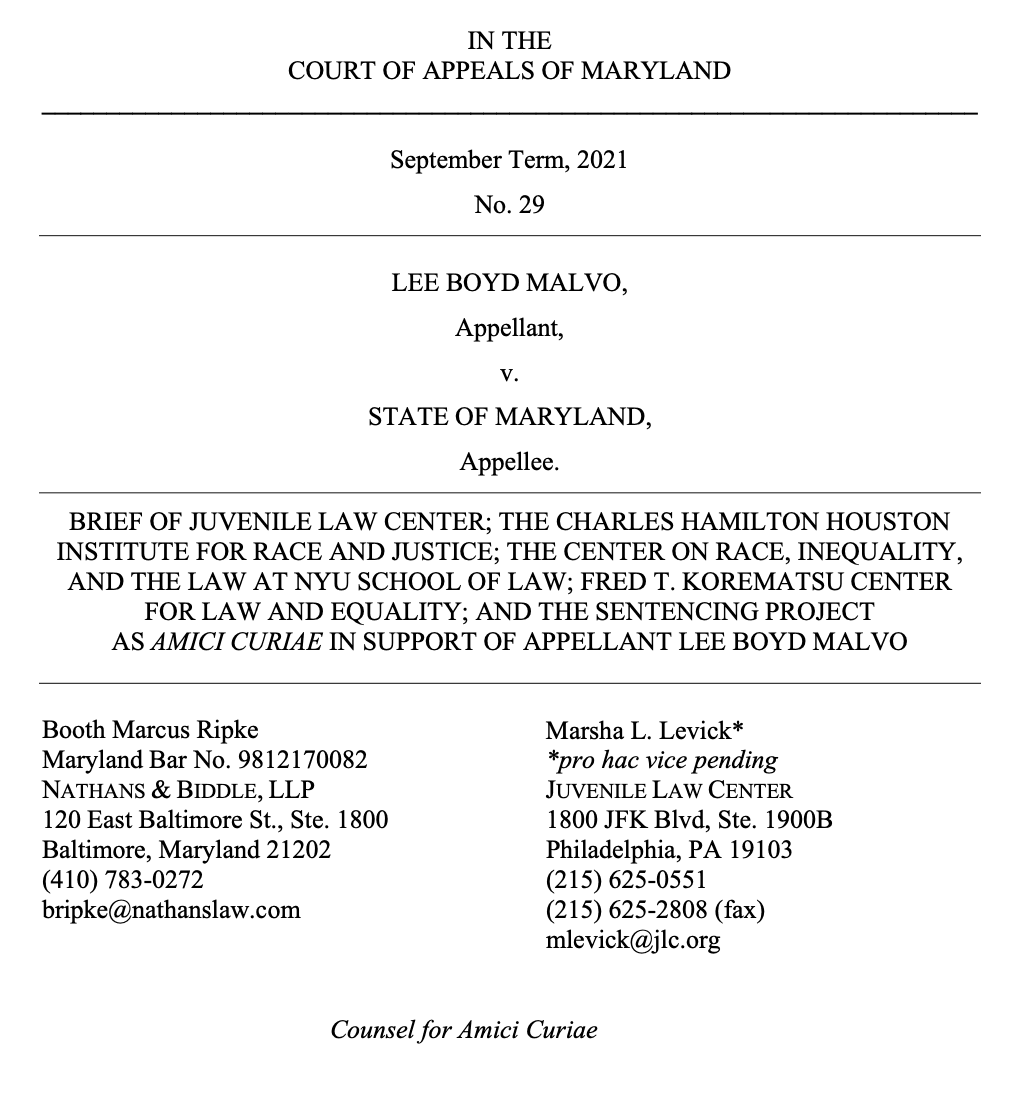
Summary of Argument
The U.S. Supreme Court has repeatedly held that youth matters in criminal sentencing; Mr. Malvo has never had a hearing that accounts for his youth. The imposition of Mr. Malvo’s sentence took place within a racist criminal legal system. The historical origins of sentencing law in Maryland have contributed to the substantial racial disparities in today’s carceral population; the lack of safeguards in sentencing further exacerbates this disparity. Mr. Malvo’s sentence is unconstitutional under Article 25 of the Maryland Declaration of Rights, and this constitutional infirmity cannot be cured by any illusory remedy set forth by the Juvenile Restoration Act (JUVRA). Mr. Malvo must be resentenced.
Open Amicus Brief as PDF